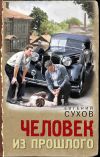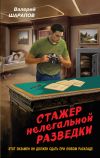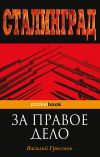Текст книги "The Great Boer War"

Автор книги: Arthur Conan Doyle
Жанр: Зарубежная публицистика, Публицистика
Возрастные ограничения: +12
сообщить о неприемлемом содержимом
Текущая страница: 23 (всего у книги 43 страниц)
But the detachment was already so placed that nothing could save it from heavy loss. The wagons had all passed but nine, and the leading battery of artillery was at the very edge of the donga. Nothing is so helpless as a limbered-up battery. In an instant the teams were shot down and the gunners were made prisoners. A terrific fire burst at the same instant upon Roberts's Horse, who were abreast of the guns. 'Files a bout! gallop!' yelled Colonel Dawson, and by his exertions and those of Major Pack-Beresford the corps was extricated and reformed some hundreds of yards further off. But the loss of horses and men was heavy. Major Pack-Beresford and other officers were shot down, and every unhorsed man remained necessarily as a prisoner under the very muzzles of the riflemen in the donga.
As Roberts's Horse turned and galloped for dear life across the flat, four out of the six guns[10]10
Of the other two one overturned and could not be righted, the other had the wheelers shot and could not be extricated from the tumult. It was officially stated that the guns of Q battery were halted a thousand yards off the donga, but my impression was, from examining the ground, that it was not more than six hundred.
[Закрыть] of Q battery and one gun (the rearmost) of U battery swung round and dashed frantically for a place of safety. At the same instant every Boer along the line of the donga sprang up and emptied his magazine into the mass of rushing, shouting soldiers, plunging horses, and screaming Kaffirs. It was for a few moments a sauve-qui-peut. Serjeant-Major Martin of U, with a single driver on a wheeler, got away the last gun of his battery. The four guns which were extricated of Q, under Major Phipps-Hornby, whirled across the plain, pulled up, unlimbered, and opened a brisk fire of shrapnel from about a thousand yards upon the donga. Had the battery gone on for double the distance, its action would have been more effective, for it would have been under a less deadly rifle fire, but in any case its sudden change from flight to discipline and order steadied the whole force. Roberts's men sprang from their horses, and with the Burmese and New Zealanders flung themselves down in a skirmish line. The cavalry moved to the left to find some drift by which the donga could be passed, and out of chaos there came in a few minutes calm and a settled purpose.
It was for Q battery to cover the retreat of the force, and most nobly it did it. A fortnight later a pile of horses, visible many hundreds of yards off across the plain, showed where the guns had stood. It was the Colenso of the horse gunners. In a devilish sleet of lead they stood to their work, loading and firing while a man was left. Some of the guns were left with two men to work them, one was loaded and fired by a single officer. When at last the order for retirement came, only ten men, several of them wounded, were left upon their feet. With scratch teams from the limbers, driven by single gunners, the twelve-pounders staggered out of action, and the skirmish line of mounted infantry sprang to their feet amid the hail of bullets to cheer them as they passed.
It was no slight task to extricate that sorely stricken force from the close contact of an exultant enemy, and to lead it across that terrible donga. Yet, thanks to the coolness of Broadwood and the steadiness of his rearguard, the thing was done. A practicable passage had been found two miles to the south by Captain Chester-Master of Rimington's. This corps, with Roberts's, the New Zealanders, and the 3rd Mounted Infantry, covered the withdrawal in turn. It was one of those actions in which the horseman who is trained to fight upon foot did very much better than the regular cavalry. In two hours' time the drift had been passed and the survivors of the force found themselves in safety.
The losses in this disastrous but not dishonourable engagement were severe. About thirty officers and five hundred men were killed, wounded, or missing. The prisoners came to more than three hundred. They lost a hundred wagons, a considerable quantity of stores, and seven twelve-pounder guns – five from U battery and two from Q. Of U battery only Major Taylor and Sergeant-Major Martin seem to have escaped, the rest being captured en bloc. Of Q battery nearly every man was killed or wounded. Roberts's Horse, the New Zealanders, and the mounted infantry were the other corps which suffered most heavily. Among many brave men who died, none was a greater loss to the service than Major Booth of the Northumberland Fusiliers, serving in the mounted infantry. With four comrades he held a position to cover the retreat, and refused to leave it. Such men are inspired by the traditions of the past, and pass on the story of their own deaths to inspire fresh heroes in the future.
Broadwood, the instant that he had disentangled himself, faced about, and brought his guns into action. He was not strong enough, however, nor were his men in a condition, to seriously attack the enemy. Martyr's mounted infantry had come up, led by the Queenslanders, and at the cost of some loss to themselves helped to extricate the disordered force. Colvile's Division was behind Bushman's Kop, only a few miles off, and there were hopes that it might push on and prevent the guns and wagons from being removed. Colvile did make an advance, but slowly and in a flanking direction instead of dashing swiftly forward to retrieve the situation. It must be acknowledged, however, that the problem which faced this General was one of great difficulty. It was almost certain that before he could throw his men into the action the captured guns would be beyond his reach, and it was possible that he might swell the disaster. With all charity, however, one cannot but feel that his return next morning, after a reinforcement during the night, without any attempt to force the Boer position, was lacking in enterprise[11]11
It may be urged in General Colvile's defence that his division had already done a long march from Bloemfontein. A division, however, which contains two such brigades as Macdonald's and Smith-Dorrien's may safely be called upon for any exertions. The gunner officers in Colvile's division heard their comrades' guns in 'section – fire' and knew it to be the sign of a desperate situation.
[Закрыть]. The victory left the Boers in possession of the waterworks, and Bloemfontein had to fall back upon her wells – a change which reacted most disastrously upon the enteric which was already decimating the troops.
The effect of the Sanna's Post defeat was increased by the fact that only four days later (on April 4th) a second even more deplorable disaster befell our troops. This was the surrender of five companies of infantry, two of them mounted, at Reddersberg. So many surrenders of small bodies of troops had occurred during the course of the war that the public, remembering how seldom the word 'surrender' had ever been heard in our endless succession of European wars, had become very restive upon the subject, and were sometimes inclined to question whether this new and humiliating fact did not imply some deterioration of our spirit. The fear was natural, and yet nothing could be more unjust to this the most splendid army which has ever marched under the red-crossed flag. The fact was new because the conditions were new, and it was inherent in those conditions. In that country of huge distances small bodies must be detached, for the amount of space covered by the large bodies was not sufficient for all military purposes. In reconnoitring, in distributing proclamations, in collecting arms, in overawing outlying districts, weak columns must be used. Very often these columns must contain infantry soldiers, as the demands upon the cavalry were excessive. Such bodies, moving through a hilly country with which they were unfamiliar, were always liable to be surrounded by a mobile enemy. Once surrounded the length of their resistance was limited by three things: their cartridges, their water, and their food. When they had all three, as at Wepener or Mafeking, they could hold out indefinitely. When one or other was wanting, as at Reddersberg or Nicholson's Nek, their position was impossible. They could not break away, for how can men on foot break away from horsemen? Hence those repeated humiliations, which did little or nothing to impede the course of the war, and which were really to be accepted as one of the inevitable prices which we had to pay for the conditions under which the war was fought. Numbers, discipline, and resources were with us. Mobility, distances, nature of the country, insecurity of supplies, were with them. We need not take it to heart therefore if it happened, with all these forces acting against them, that our soldiers found themselves sometimes in a position whence neither wisdom nor valour could rescue them. To travel through that country, fashioned above all others for defensive warfare, with trench and fort of superhuman size and strength, barring every path, one marvels how it was that such incidents were not more frequent and more serious. It is deplorable that the white flag should ever have waved over a company of British troops, but the man who is censorious upon the subject has never travelled in South Africa.
In the disaster at Reddersberg three of the companies were of the Irish Rifles, and two of the 2nd Northumberland Fusiliers – the same unfortunate regiments which had already been cut up at Stormberg. They had been detached from Gatacre's 3rd Division, the headquarters of which was at Springfontein. On the abandonment of Thabanchu and the disaster of Sanna's Post, it was obvious that we should draw in our detached parties to the east; so the five companies were ordered to leave Dewetsdorp, which they were garrisoning, and to get back to the railway line. Either the order was issued too late, or they were too slow in obeying it, for they were only halfway upon their journey, near the town of Reddersberg, when the enemy came down upon them with five guns. Without artillery they were powerless, but, having seized a kopje, they took such shelter as they could find, and waited in the hope of succour. Their assailants seem to have been detached from De Wet's force in the north, and contained among them many of the victors of Sanna's Post. The attack began at 11 A.M. of April 3rd, and all day the men lay among the stones, subjected to the pelt of shell and bullet. The cover was good, however, and the casualties were not heavy. The total losses were under fifty killed and wounded. More serious than the enemy's fire was the absence of water, save a very limited supply in a cart. A message was passed through of the dire straits in which they found themselves, and by the late afternoon the news had reached headquarters. Lord Roberts instantly despatched the Camerons, just arrived from Egypt, to Bethany, which is the nearest point upon the line, and telegraphed to Gatacre at Springfontein to take measures to save his compromised detachment. The telegram should have reached Gatacre early on the evening of the 3rd, and he had collected a force of fifteen hundred men, entrained it, journeyed forty miles up the line, detrained it, and reached Reddersberg, which is ten or twelve miles from the line, by 10.30 next morning. Already, however, it was too late, and the besieged force, unable to face a second day without water under that burning sun, had laid down their arms. No doubt the stress of thirst was dreadful, and yet one cannot say that the defence rose to the highest point of resolution. Knowing that help could not be far off, the garrison should have held on while they could lift a rifle. If the ammunition was running low, it was bad management which caused it to be shot away too fast. Captain McWhinnie, who was in command, behaved with the utmost personal gallantry. Not only the troops but General Gatacre also was involved in the disaster. Blame may have attached to him for leaving a detachment at Dewetsdorp, and not having a supporting body at Reddersberg upon which it might fall back; but it must be remembered that his total force was small and that he had to cover a long stretch of the lines of communication. As to General Gatacre's energy and gallantry it is a by-word in the army; but coming after the Stormberg disaster this fresh mishap to his force made the continuance of his command impossible. Much sympathy was felt with him in the army, where he was universally liked and respected by officers and men. He returned to England, and his division was taken over by General Chermside.
In a single week, at a time when the back of the war had seemed to be broken, we had lost nearly twelve hundred men with seven guns. The men of the Free State – for the fighting was mainly done by commandos from the Ladybrand, Winburg, Bethlehem, and Harrismith districts – deserve great credit for this fine effort, and their leader De Wet confirmed the reputation which he had already gained as a dashing and indefatigable leader. His force was so weak that when Lord Roberts was able to really direct his own against it, he brushed it away before him; but the manner in which De Wet took advantage of Roberts's enforced immobility, and dared to get behind so mighty an enemy, was a fine exhibition of courage and enterprise. The public at home chafed at this sudden and unexpected turn of affairs; but the General, constant to his own fixed purpose, did not permit his strength to be wasted, and his cavalry to be again disorganised, by flying excursions, but waited grimly until he should be strong enough to strike straight at Pretoria.
In this short period of depression there came one gleam of light from the west. This was the capture of a commando of sixty Boers, or rather of sixty foreigners fighting for the Boers, and the death of the gallant Frenchman, De Villebois-Mareuil, who appears to have had the ambition of playing Lafayette in South Africa to Kruger's Washington. From the time that Kimberley had been reoccupied the British had been accumulating their force there so as to make a strong movement which should coincide with that of Roberts from Bloemfontein. Hunter's Division from Natal was being moved round to Kimberley, and Methuen already commanded a considerable body of troops, which included a number of the newly arrived Imperial Yeomanry. With these Methuen pacified the surrounding country, and extended his outposts to Barkly West on the one side, to Boshof on the other, and to Warrenton upon the Vaal River in the centre. On April 4th news reached Boshof that a Boer commando had been seen some ten miles to the east of the town, and a force, consisting of Yeomanry, Kimberley Light Horse, and half of Butcher's veteran 4th battery, was sent to attack them. They were found to have taken up their position upon a kopje which, contrary to all Boer custom, had no other kopjes to support it. French generalship was certainly not so astute as Boer cunning. The kopje was instantly surrounded, and the small force upon the summit being without artillery in the face of our guns found itself in exactly the same position which our men had been in twenty-four hours before at Reddersberg. Again was shown the advantage which the mounted rifleman has over the cavalry, for the Yeomanry and Light Horsemen left their horses and ascended the hill with the bayonet. In three hours all was over and the Boers had laid down their arms. Villebois was shot with seven of his companions, and there were nearly sixty prisoners. It speaks well for the skirmishing of the Yeomanry and the way in which they were handled by Lord Chesham that though they worked their way up the hill under fire they only lost four killed and a few wounded. The affair was a small one, but it was complete, and it came at a time when a success was very welcome. One bustling week had seen the expensive victory of Karee, the disasters of Sanna's Post and Reddersberg, and the successful skirmish of Boshof. Another chapter must be devoted to the movement towards the south of the Boer forces and the dispositions which Lord Roberts made to meet it.
Chapter 23. The clearing of the South-East
Lord Roberts never showed his self-command and fixed purpose more clearly than during his six weeks' halt at Bloemfontein. De Wet, the most enterprising and aggressive of the Boer commanders, was attacking his eastern posts and menacing his line of communications. A fussy or nervous general would have harassed his men and worn out his horses by endeavouring to pursue a number of will-of-the-wisp commandos. Roberts contented himself by building up his strength at the capital, and by spreading nearly twenty thousand men along his line of rail from Bloemfontein to Bethulie. When the time came he would strike, but until then he rested. His army was not only being rehorsed and reshod, but in some respects was being reorganised. One powerful weapon which was forged during those weeks was the collection of the mounted infantry of the central army into one division, which was placed under the command of Ian Hamilton, with Hutton and Ridley as brigadiers. Hutton's brigade contained the Canadians, New South Wales men, West Australians, Queenslanders, New Zealanders, Victorians, South Australians, and Tasmanians, with four battalions of Imperial Mounted Infantry, and several light batteries. Ridley's brigade contained the South African irregular regiments of cavalry, with some imperial troops. The strength of the whole division came to over ten thousand rifles, and in its ranks there rode the hardiest and best from every corner of the earth over which the old flag is flying.
A word as to the general distribution of the troops at this instant while Roberts was gathering himself for his spring. Eleven divisions of infantry were in the field. Of these the 1st (Methuen's) and half the 10th (Hunter's) were at Kimberley, forming really the hundred-mile-distant left wing of Lord Roberts's army. On that side also was a considerable force of Yeomanry, as General Villebois discovered. In the centre with Roberts was the 6th division (Kelly-Kenny's) at Bloemfontein, the 7th (Tucker's) at Karee, twenty miles north, the 9th (Colvile's) and the 11th (Pole-Carew's) near Bloemfontein. French's cavalry division was also in the centre. As one descended the line towards the Cape one came on the 3rd division (Chermside's, late Gatacre's), which had now moved up to Reddersberg, and then, further south, the 8th (Rundle's), near Rouxville. To the south and east was the other half of Hunter's division (Hart's brigade), and Brabant's Colonial division, half of which was shut up in Wepener and the rest at Aliwal. These were the troops operating in the Free State, with the addition of the division of mounted infantry in process of formation.
There remained the three divisions in Natal, the 2nd (Clery's), the 4th (Lyttelton's), and the 5th (Hildyard's, late Warren's), with the cavalry brigades of Burn-Murdoch, Dundonald, and Brocklehurst. These, with numerous militia and unbrigaded regiments along the lines of communication, formed the British army in South Africa. At Mafeking some 900 irregulars stood at bay, with another force about as large under Plumer a little to the north, endeavouring to relieve them. At Beira, a Portuguese port through which we have treaty rights by which we may pass troops, a curious mixed force of Australians, New Zealanders and others was being disembarked and pushed through to Rhodesia, so as to cut off any trek which the Boers might make in that direction. Carrington, a fierce old soldier with a large experience of South African warfare, was in command of this picturesque force, which moved amid tropical forests over crocodile-haunted streams, while their comrades were shivering in the cold southerly winds of a Cape winter. Neither our Government, our people, nor the world understood at the beginning of this campaign how grave was the task which we had undertaken, but, having once realised it, it must be acknowledged that it was carried through in no half-hearted way. So vast was the scene of operations that the Canadian might almost find his native climate at one end of it and the Queenslander at the other.
To follow in close detail the movements of the Boers and the counter movements of the British in the southeast portion of the Free State during this period would tax the industry of the historian and the patience of the reader. Let it be told with as much general truth and as little geographical detail as possible. The narrative which is interrupted by an eternal reference to the map is a narrative spoiled.
The main force of the Freestaters had assembled in the north-eastern corner of their State, and from this they made their sally southwards, attacking or avoiding at their pleasure the eastern line of British outposts. Their first engagement, that of Sanna's Post, was a great and deserved success. Three days later they secured the five companies at Reddersberg. Warned in time, the other small British bodies closed in upon their supports, and the railway line, that nourishing artery which was necessary for the very existence of the army, was held too strongly for attack. The Bethulie Bridge was a particularly important point; but though the Boers approached it, and even went the length of announcing officially that they had destroyed it, it was not actually attacked. At Wepener, however, on the Basutoland border, they found an isolated force, and proceeded at once, according to their custom, to hem it in and to bombard it, until one of their three great allies, want of food, want of water, or want of cartridges, should compel a surrender.
On this occasion, however, the Boers had undertaken a task which was beyond their strength. The troops at Wepener were one thousand seven hundred in number, and formidable in quality. The place had been occupied by part of Brabant's Colonial division, consisting of hardy irregulars, men of the stuff of the defenders of Mafeking. Such men are too shrewd to be herded into an untenable position and too valiant to surrender a tenable one. The force was commanded by a dashing soldier, Colonel Dalgety, of the Cape Mounted Rifles, as tough a fighter as his famous namesake. There were with him nearly a thousand men of Brabant's Horse, four hundred of the Cape Mounted Rifles, four hundred Kaffrarian Horse, with some scouts, and one hundred regulars, including twenty invaluable Sappers. They were strong in guns – two seven-pounders, two naval twelve-pounders, two fifteen-pounders and several machine guns. The position which they had taken up, Jammersberg, three miles north of Wepener, was a very strong one, and it would have taken a larger force than De Wet had at his disposal to turn them out of it. The defence had been arranged by Major Cedric Maxwell, of the Sappers; and though the huge perimeter, nearly eight miles, made its defence by so small a force a most difficult matter, the result proved how good his dispositions were.
At the same time, the Boers came on with every confidence of victory, for they had a superiority in guns and an immense superiority in men. But after a day or two of fierce struggle their attack dwindled down into a mere blockade. On April 9th they attacked furiously, both by day and by night, and on the 10th the pressure was equally severe. In these two days occurred the vast majority of the casualties. But the defenders took cover in a way to which British regulars have not yet attained, and they outshot their opponents both with their rifles and their cannon. Captain Lukin's management of the artillery was particularly skilful. The weather was vile and the hastily dug trenches turned into ditches half full of water, but neither discomfort nor danger shook the courage of the gallant colonials. Assault after assault was repulsed, and the scourging of the cannon was met with stolid endurance. The Boers excelled all their previous feats in the handling of artillery by dragging two guns up to the summit of the lofty Jammersberg, whence they fired down upon the camp. Nearly all the horses were killed and three hundred of the troopers were hit, a number which is double that of the official return, for the simple reason that the spirit of the force was so high that only those who were very severely wounded reported themselves as wounded at all. None but the serious cases ever reached the hands of Dr. Faskally, who did admirable work with very slender resources. How many the enemy lost can never be certainly known, but as they pushed home several attacks it is impossible to imagine that their losses were less than those of the victorious defenders. At the end of seventeen days of mud and blood the brave irregulars saw an empty laager and abandoned trenches. Their own resistance and the advance of Brabant to their rescue had caused a hasty retreat of the enemy. Wepener, Mafeking, Kimberley, the taking of the first guns at Ladysmith, the deeds of the Imperial Light Horse – it cannot be denied that our irregular South African forces have a brilliant record for the war. They are associated with many successes and with few disasters. Their fine record cannot, I think, be fairly ascribed to any greater hardihood which one portion of our race has when compared with another, for a South African must admit that in the best colonial corps at least half the men were Britons of Britain. In the Imperial Light Horse the proportion was very much higher. But what may fairly be argued is that their exploits have proved, what the American war proved long ago, that the German conception of discipline is an obsolete fetish, and that the spirit of free men, whose individualism has been encouraged rather than crushed, is equal to any feat of arms. The clerks and miners and engineers who went up Elandslaagte Hill without bayonets, shoulder to shoulder with the Gordons, and who, according to Sir George White, saved Ladysmith on January 6th, have shown for ever that with men of our race it is the spirit within, and not the drill or the discipline, that makes a formidable soldier. An intelligent appreciation of the fact might in the course of the next few years save us as much money as would go far to pay for the war.
It may well be asked how for so long a period as seventeen days the British could tolerate a force to the rear of them when with their great superiority of numbers they could have readily sent an army to drive it away. The answer must be that Lord Roberts had despatched his trusty lieutenant, Kitchener, to Aliwal, whence he had been in heliographic communication with Wepener, that he was sure that the place could hold out, and that he was using it, as he did Kimberley, to hold the enemy while he was making his plans for their destruction. This was the bait to tempt them to their ruin. Had the trap not been a little slow in closing, the war in the Free State might have ended then and there. From the 9th to the 25th the Boers were held in front of Wepener. Let us trace the movements of the other British detachments during that time.
Brabant's force, with Hart's brigade, which had been diverted on its way to Kimberley, where it was to form part of Hunter's division, was moving on the south towards Wepener, advancing through Rouxville, but going slowly for fear of scaring the Boers away before they were sufficiently compromised. Chermside's 3rd division approached from the north-west, moving out from the railway at Bethany, and passing through Reddersberg towards Dewetsdorp, from which it would directly threaten the Boer line of retreat. The movement was made with reassuring slowness and gentleness, as when the curved hand approaches the unconscious fly. And then suddenly, on April 21st, Lord Roberts let everything go. Had the action of the agents been as swift and as energetic as the mind of the planner, De Wet could not have escaped us.
What held Lord Roberts's hand for some few days after he was ready to strike was the abominable weather. Rain was falling in sheets, and those who know South African roads, South African mud, and South African drifts will understand how impossible swift military movements are under those circumstances. But with the first clearing of the clouds the hills to the south and east of Bloemfontein were dotted with our scouts. Rundle with his 8th division was brought swiftly up from the south, united with Chermside to the east of Reddersberg, and the whole force, numbering 13,000 rifles with thirty guns, advanced upon Dewetsdorp, Rundle, as senior officer, being in command. As they marched the blue hills of Wepener lined the sky some twenty miles to the south, eloquent to every man of the aim and object of their march.
On April 20th, Rundle as he advanced found a force with artillery across his path to Dewetsdorp. It is always difficult to calculate the number of hidden men and lurking guns which go to make up a Boer army, but with some knowledge of their total at Wepener it was certain that the force opposed to him must be very inferior to his own. At Constantia Farm, where he found them in position, it is difficult to imagine that there were more than three thousand men. Their left flank was their weak point, as a movement on that side would cut them off from Wepener and drive them up towards our main force in the north. One would have thought that a containing force of three thousand men, and a flanking movement from eight thousand, would have turned them out, as it has turned them out so often before and since. Yet a long-range action began on Friday, April 20th, and lasted the whole of the 21st, the 22nd, and the 23rd, in which we sustained few losses, but made no impression upon the enemy. Thirty of the 1st Worcesters wandered at night into the wrong line, and were made prisoners, but with this exception the four days of noisy fighting does not appear to have cost either side fifty casualties. It is probable that the deliberation with which the operations were conducted was due to Rundle's instructions to wait until the other forces were in position. His subsequent movements showed that he was not a General who feared to strike.
On Sunday night (April 22nd) Pole-Carew sallied out from Bloemfontein on a line which would take him round the right flank of the Boers who were facing Rundle. The Boers had, however, occupied a strong position at Leeuw Kop, which barred his path, so that the Dewetsdorp Boers were covering the Wepener Boers, and being in turn covered by the Boers of Leeuw Kop. Before anything could be done, they must be swept out of the way. Pole-Carew is one of those finds which help to compensate us for the war. Handsome, dashing, debonnaire, he approaches a field of battle as a light-hearted schoolboy approaches a football field. On this occasion he acted with energy and discretion. His cavalry threatened the flanks of the enemy, and Stephenson's brigade carried the position in front at a small cost. On the same evening General French arrived and took over the force, which consisted now of Stephenson's and the Guards brigades (making up the 11th division), with two brigades of cavalry and one corps of mounted infantry. The next day, the 23rd, the advance was resumed, the cavalry bearing the brunt of the fighting. That gallant corps, Roberts's Horse, whose behaviour at Sanna's Post had been admirable, again distinguished itself, losing among others its Colonel, Brazier Creagh. On the 24th again it was to the horsemen that the honour and the casualties fell. The 9th Lancers, the regular cavalry regiment which bears away the honours of the war, lost several men and officers, and the 8th Hussars also suffered, but the Boers were driven from their position, and lost more heavily in this skirmish than in some of the larger battles of the campaign. The 'pom-poms,' which had been supplied to us by the belated energy of the Ordnance Department, were used with some effect in this engagement, and the Boers learned for the first time how unnerving are those noisy but not particularly deadly fireworks which they had so often crackled round the ears of our gunners.
Правообладателям!
Это произведение, предположительно, находится в статусе 'public domain'. Если это не так и размещение материала нарушает чьи-либо права, то сообщите нам об этом.








































